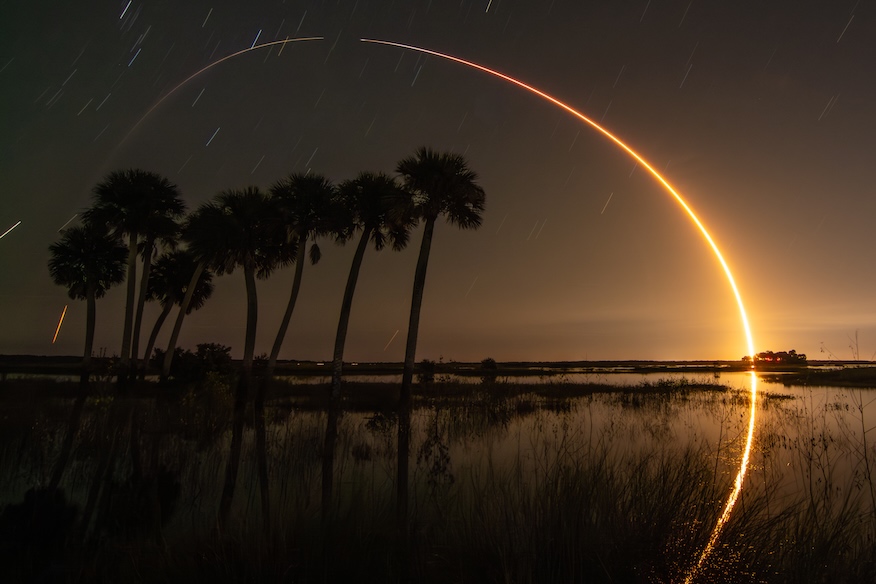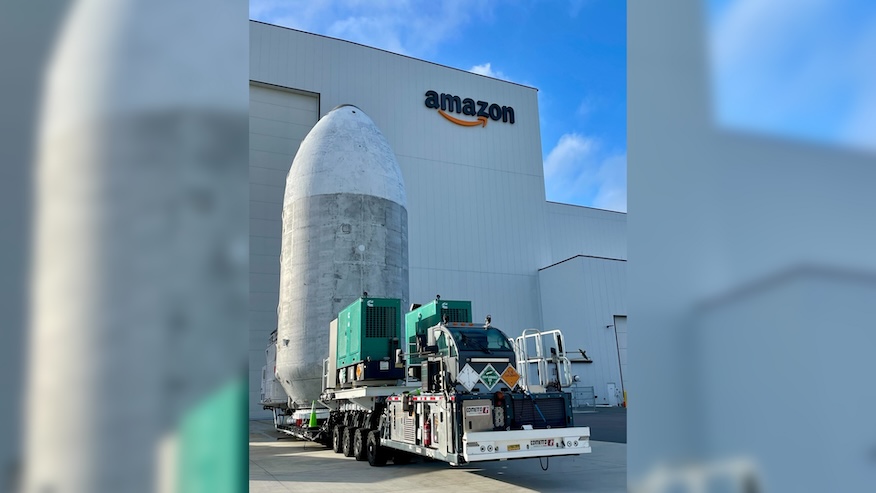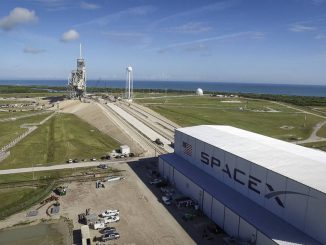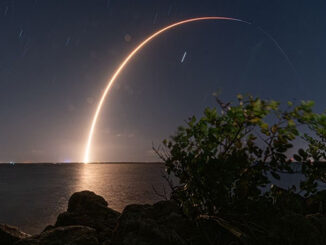
Update Oct. 13, 11:27 p.m. EDT (0327 UTC): SpaceX confirmed deployment of the Kuiper satellites.
After more than a week of launch delays, SpaceX launched its Falcon 9 rocket from Cape Canaveral Space Force Station with two dozen of Amazon’s Project Kuiper broadband internet satellites onboard Monday night. The mission came about an hour and a half following the splashdown of SpaceX’s Starship rocket at the conclusion of Starship Flight 11.
The mission, dubbed Kuiper Falcon 03 or KF-03, faced several days of launch delays due to poor weather both at the Cape as well as offshore. Liftoff from Space Launch Complex 40 happened at 9:58 p.m. EDT (0158 UTC).
On Sunday, the 45th Weather Squadron forecast a 95 percent chance for favorable weather during the launch window. However, it continues to project a “moderate” risk for the booster recovery area on a scale of low-moderate-high.
“Winds will slowly veer from the northwest to the north, and low moisture levels will allow for mostly clear skies,” launch weather officers wrote. “This pattern will continue through the backup window on Tuesday evening as well. Thus, the only concern for both the primary and backup launch days is the very low risk of a Cumulus Cloud Rule violation.
“Recovery conditions will continue to be a watch item both days due to elevated winds and seas associated with the low near the landing zone.”
SpaceX launched this mission using the Falcon 9 first stage booster B1091, which launched for a second time. The booster, which will eventually be used as a Falcon Heavy core booster, previously supported the KF-02 mission.
B1091 performed an autonomous landing on the drone ship, ‘A Shortfall of Gravitas,’ a little more than eight minutes after liftoff. This was the 128th landing on this vessel and the 517th booster landing to date.
The Kuiper deployment sequence began more than 56 minutes after liftoff and wrapped up less than eight minutes later. It brings the satellite constellation up to a total of 153 in low Earth orbit.
This was the sixth overall mission supporting the Kuiper constellation, following three launches onboard United Launch Alliance Atlas 5 rockets and two onboard Falcon 9 rockets.




